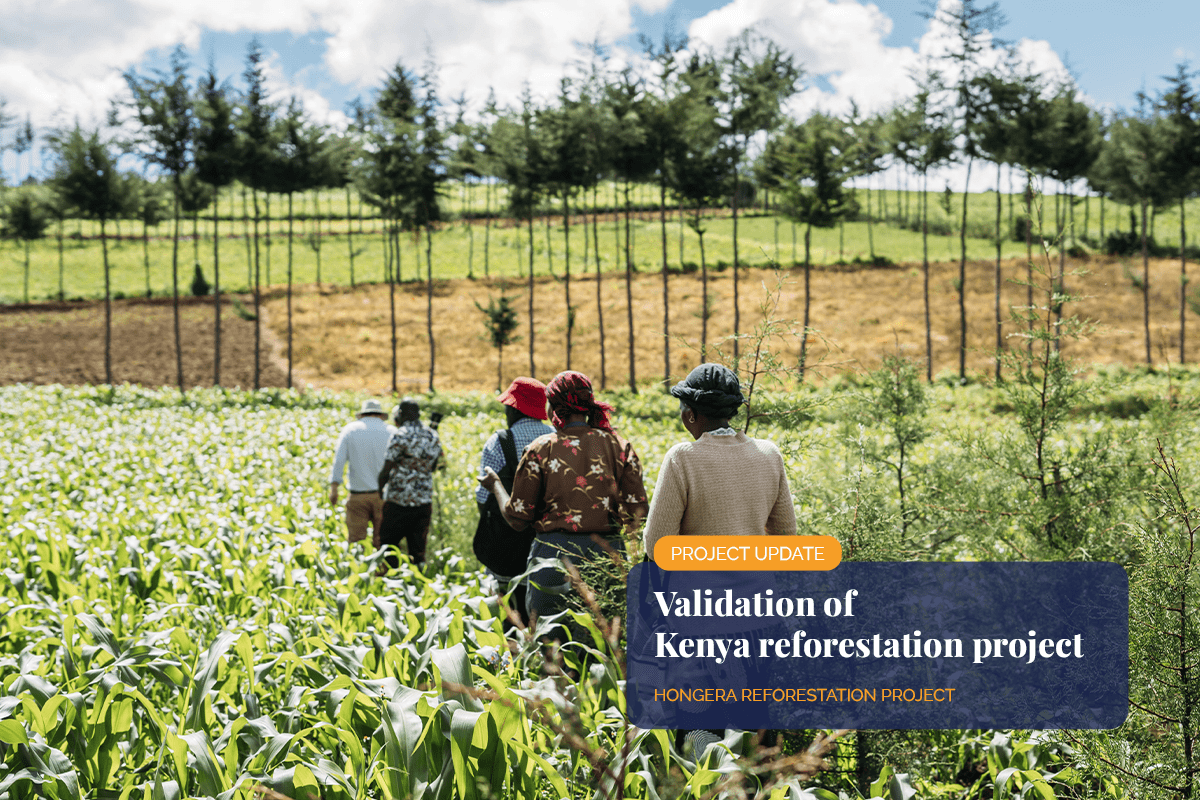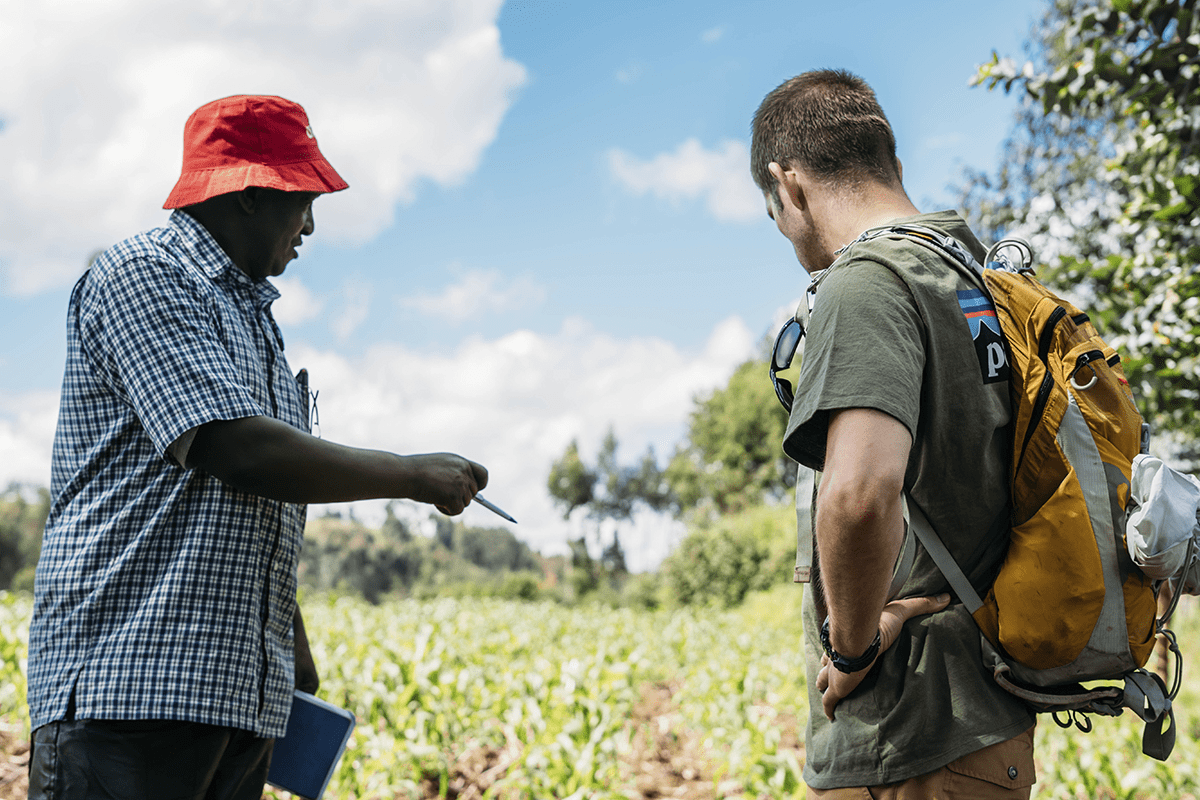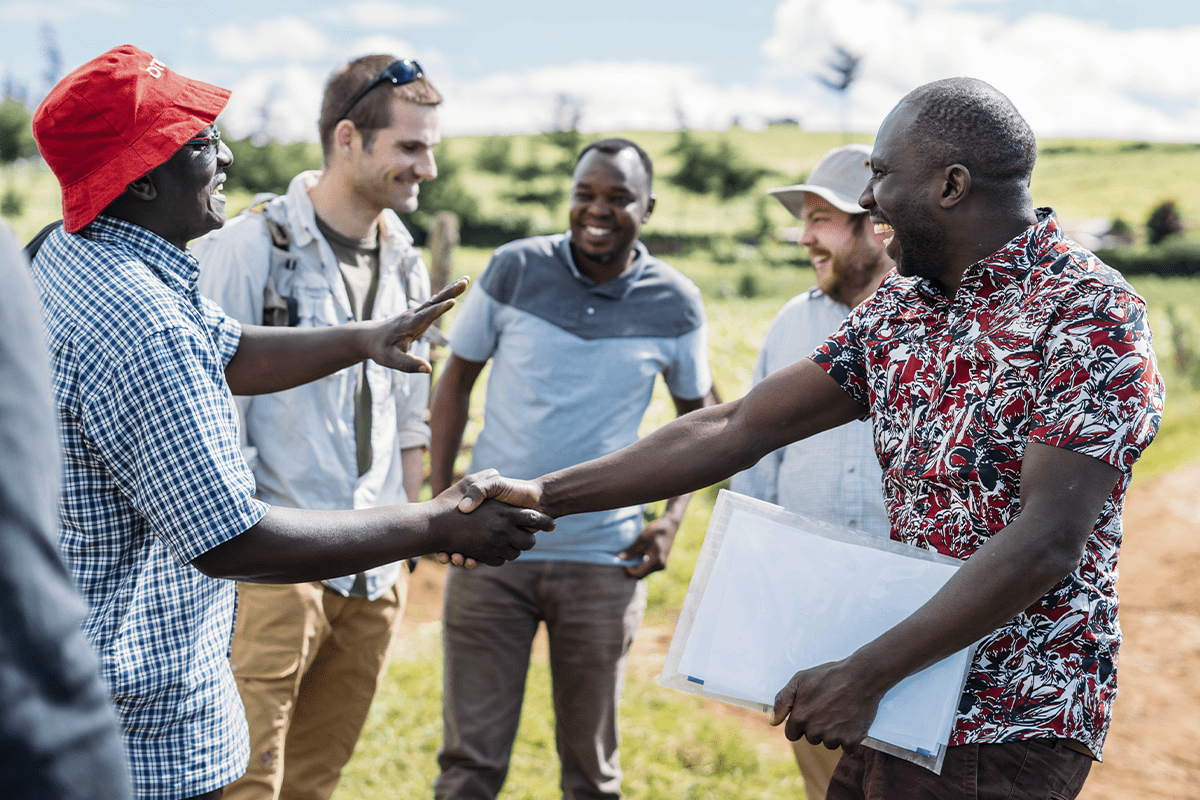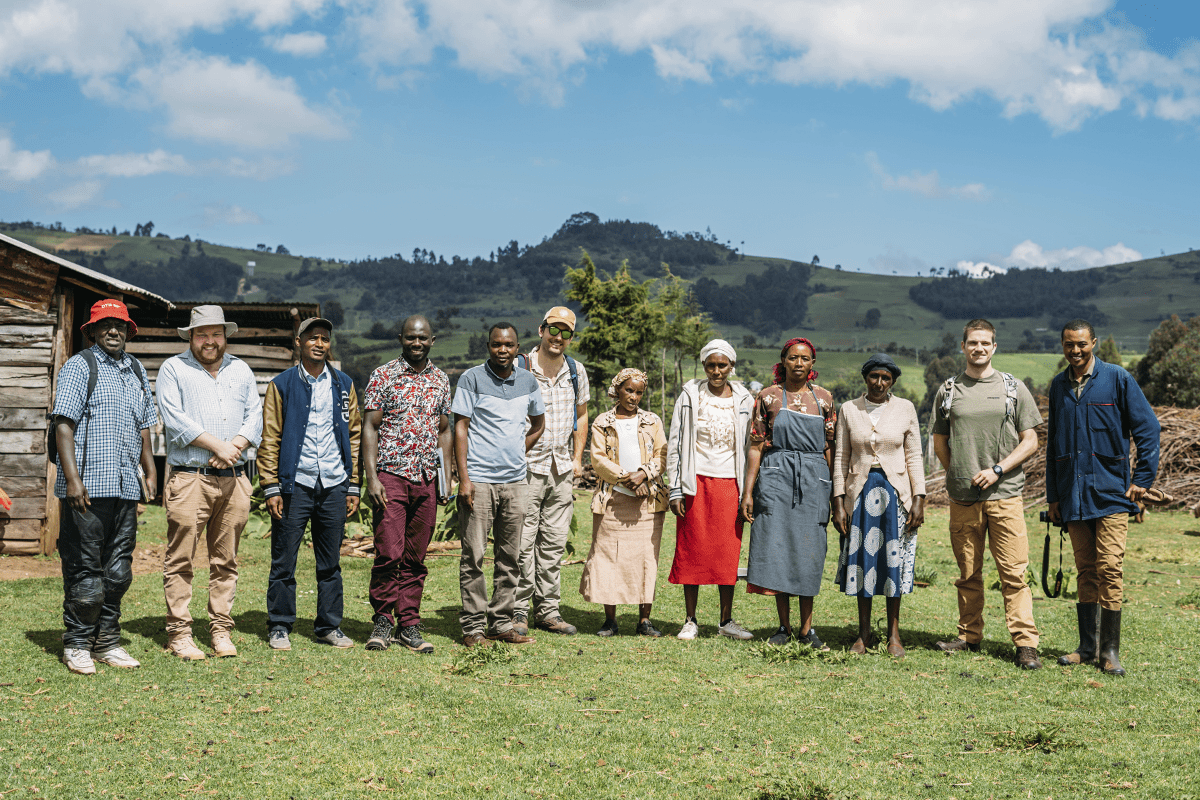DGB Group is deeply committed to implementing impactful nature conservation projects, and one such initiative is our reforestation project in Kenya—the Hongera Reforestation Project. As an organisation dedicated to sustainable development, DGB recognises the significance of a robust validation process in ensuring the successful execution and credibility of its projects. The validation process is a critical checkpoint, where independent auditors thoroughly assess and certify the project design, documentation, and on-ground implementation. This process confirms the project's adherence to established standards and regulations and fosters trust among stakeholders, including local communities, governments, and project partners. By undertaking meticulous validation, DGB aims to demonstrate its commitment to transparency, stakeholder engagement, and long-term environmental sustainability.
 Group of local people on a field during validation of DGB’s Kenya reforestation project under Verified Carbon Standard (VCS) performed by AENOR represented by Daniel Masika, Mount Kenya Region.
Group of local people on a field during validation of DGB’s Kenya reforestation project under Verified Carbon Standard (VCS) performed by AENOR represented by Daniel Masika, Mount Kenya Region.
The validation process
The validation process for each project adheres to a similar framework, ensuring consistency in the assessment methodology employed. The validation process involves presenting the project's design, documentation, and on-ground project status to auditors. These auditors meticulously examine the project's compliance with regulations, stakeholder engagement, and land ownership. By engaging with landowners, local communities, government representatives, and project staff, the auditors verify the project's credibility and impact. Upon completion, the project developer receives valuable feedback from the auditors, which will be utilised to further refine and enhance the project.
 Thomas Donia participating in validation of DGB’s Kenya reforestation project under Verified Carbon Standard (VCS) performed by AENOR represented by Daniel Masika, Mount Kenya Region.
Thomas Donia participating in validation of DGB’s Kenya reforestation project under Verified Carbon Standard (VCS) performed by AENOR represented by Daniel Masika, Mount Kenya Region.
Recently, in Kenya, DGB embarked on validating our Hongera Reforestation Project. With the auditors assessing various aspects, such as project design, stakeholder engagement, and legal compliance, the validation process aims to confirm the project's suitability and alignment with local regulations and cultural sensitivities. The auditors engaged with landowners, local communities, governmental bodies, project teams, and legal experts to ensure a comprehensive evaluation. While awaiting the audit team's feedback and subsequent questions, DGB remains confident in the project's alignment with sustainability goals and anticipates a positive outcome.
Read more about the reforestation of lushing forests in Kenya
The importance of the validation process
The validation process is a crucial milestone for DGB's nature conservation projects, including our reforestation initiative in Kenya. By obtaining certification and approval through this rigorous process, DGB demonstrates its continued commitment to transparency, accountability, and environmental sustainability.
Explore DGB’s carbon removal and biodiversity projects
The validation process plays a pivotal role in instilling confidence among stakeholders. Through meticulous documentation, on-site visits, and engagement with all relevant parties, auditors are able to assess the project's adherence to standards, regulations, and best practices. This assessment fosters trust not only among local communities and governments but also among project partners, investors, and the public.
 DGB team participating in validation of DGB’s Kenya reforestation project under Verified Carbon Standard (VCS) performed by AENOR represented by Daniel Masika, Mount Kenya Region.
DGB team participating in validation of DGB’s Kenya reforestation project under Verified Carbon Standard (VCS) performed by AENOR represented by Daniel Masika, Mount Kenya Region.
Additionally, the validation process offers an opportunity for continuous improvement. The feedback and clarification questions received from the auditors enable DGB to address any identified gaps, make necessary adjustments to the project design, and enhance its overall impact. This thorough approach ensures the project aligns with stakeholders' evolving needs and expectations while maximising its environmental and social benefits.
Furthermore, achieving project certification through the validation process unlocks a multitude of opportunities. It enables DGB to generate tangible outcomes, such as reforestation and ecosystem restoration, while also facilitating expansion possibilities. Certified projects are beacons of success and credibility, attracting further investments, partnerships, and support for future initiatives.
 DGB team and group of local people participating in validation of DGB’s Kenya reforestation project under Verified Carbon Standard (VCS) performed by AENOR represented by Daniel Masika, Mount Kenya Region.
DGB team and group of local people participating in validation of DGB’s Kenya reforestation project under Verified Carbon Standard (VCS) performed by AENOR represented by Daniel Masika, Mount Kenya Region.
DGB Group continues to forge the road to a sustainable future
The validation process is an essential component of our nature conservation projects. Through rigorous assessments, engagement with stakeholders, and adherence to standards, DGB ensures the transparency, credibility, and long-term success of its initiatives. By undertaking thorough validations in projects like the reforestation endeavours in Cameroon and Kenya, DGB remains steadfast in its commitment to sustainable development, environmental stewardship, and the wellbeing of local communities.
Join our mission for a greener future




